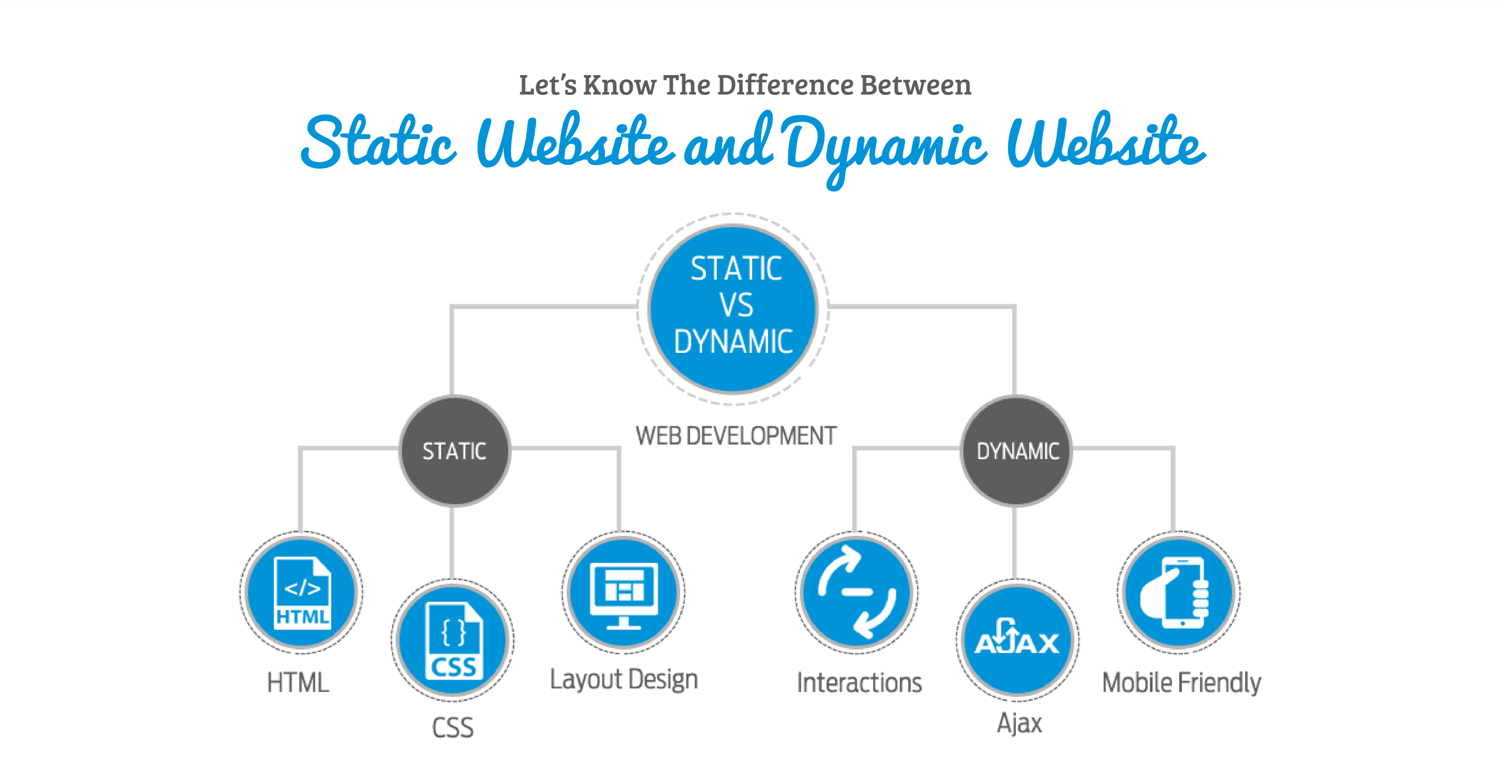
There are basically two main types of website - static and dynamic.
As we very well know that web development is essential for the marketing and growth of the websites, we should have a proper plan to carry out this process. There are is Website Development Company in Lucknow who can help you in designing your static or dynamic websites.
Here you will learn about difference between static and dynamic websites i.e. static vs. dynamic web pages.
Static Website
A static site is one that is usually written in plain HTML and what is in the code of the page is what is displayed to the user.
In static web development, each page can be unique and different from the other. The designer is free to include or exclude special effects, layouts, themes etc. from every page.
Advantage of Static Website
Flexibility is the main advantage of a static site - every page can be different if desired, to match the layout to different content, and the designer is free to put in any special effects that a client may ask for in a unique way on different pages.
Cost is generally lower up-front than a dynamic site.
Static Websites requires very less data to store on the server.
Disadvantage of Static Website
The main problem with any static site appears when you wish to update the content. Unless you are conversant with HTML and the design methods used in the site then you have to go back to the designer to have any content changes made. This may be perfectly ok when a new page is required which needs design input, but if all you want to do is change some text then it can be a nuisance for both client and designer.
The second main problem is scalability. If you wish to sell products on your site and you have a lot of them then you may have to construct individual pages for each one, which can take considerable time, effort and cost.
Costs - there are ongoing costs for updating the content.
Dynamic Website
A dynamic site is one that is written using a server-side scripting language such as PHP, ASP, JSP, or ColdFusion. In such a site the content is called in by the scripting language from other files or from a database depending on actions taken by the user.
Dynamic features of a site can only be restricted to imagination. Some examples of dynamic website features could be: content management system (CMS), e-commerce system, bulletin/forums/discussion boards, intranet or extranet facilities, ability for clients or users to upload documents, ability for administrators or users to create content or add information to a site
Advantage of Dynamic Website
Much more functional website
Much easier to update
Can connect to a database and Content Management System
New content brings people back to the site and helps in the search engines
Can be used as a system for users or professionals to collaborate
Dynamic Website Disadvantage
Slower, more expensive to develop
Hosting costs a little more





